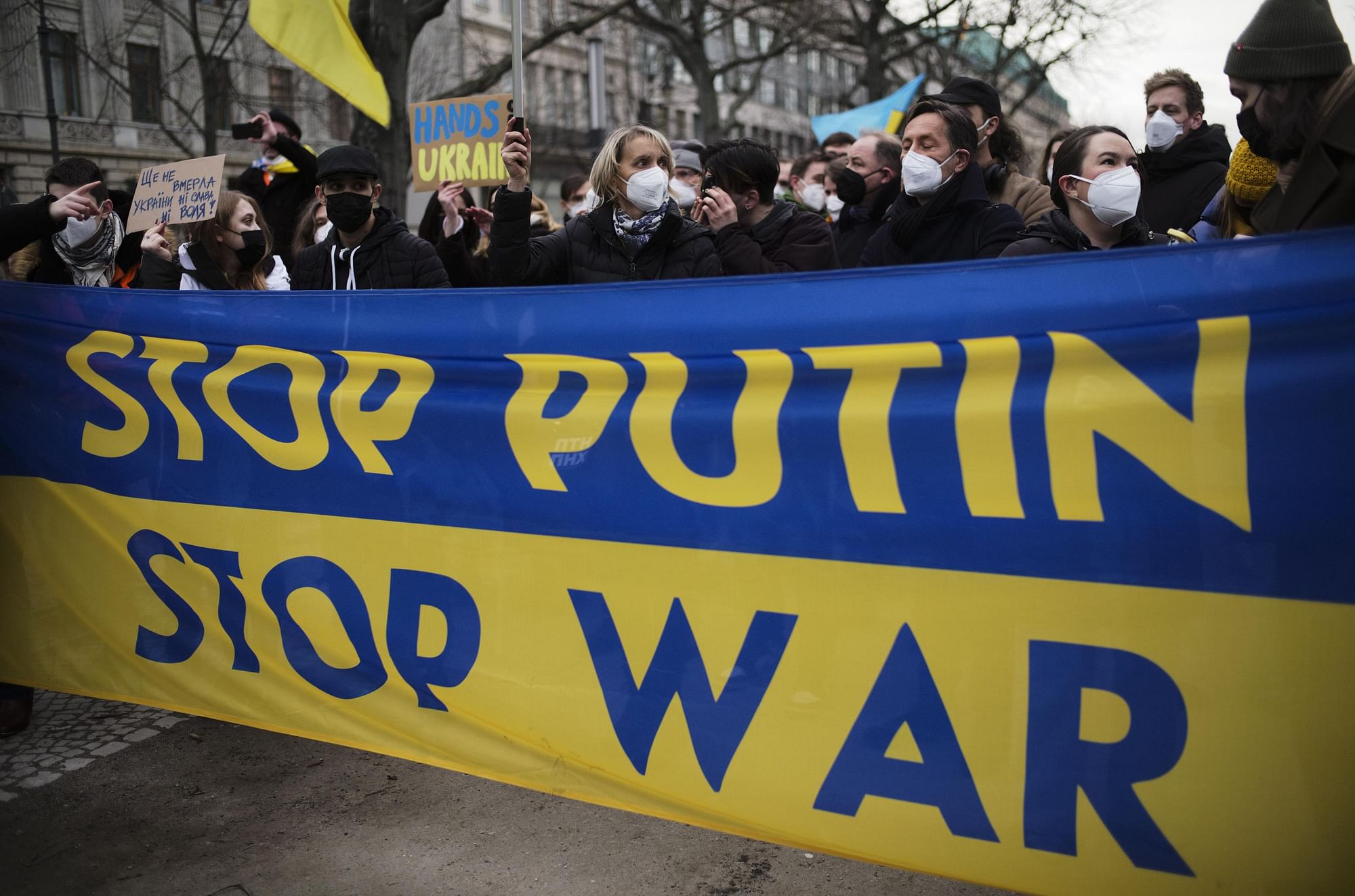Hot News
UN rushing to prevent trafficking as millions flee Ukraine

Agency Report
As millions of people flee the raging conflict in Ukraine, aid workers are scrambling to ensure human traffickers do not take advantage of the chaos, a top UN official said.
With many able-bodied men remaining in Ukraine to fight the Russian forces since they launched their full-scale invasion three weeks ago, women, children and the elderly make up the vast majority of those who have fled the country.
This makes the refugees pouring into neighbouring countries particularly vulnerable to people traffickers, warned the UN’s International Organization for Migration (IOM).
“We know how adaptive the traffickers are to situations,” IOM deputy chief Ugochi Daniels told AFP in an interview.
“They will want to take advantage of this.”
She added that so far, the organisation had not recorded any confirmed trafficking cases.
“But that does not mean that it’s not happening,” she stressed.
“We are acting pre-emptively, given the sheer numbers of people that are moving and who… are desperately looking for transport.”
– Unaccompanied minors –
Around half of the more than three million people who have fled Ukraine since the invasion on February 24 are children, and the United Nations has warned that the many unaccompanied minors are at risk.
Even before the invasion, human trafficking was considered a significant problem in Ukraine.
In 2021 alone, IOM identified and assisted more than 1,000 trafficking victims in the country.
The UN agency has scaled up its efforts to prevent people trafficking inside Ukraine and among those moving throughout the region since the invasion began.
Daniels said IOM staff were focusing on providing information to those fleeing about their options, including details on available services and safe transport.
“We’ve heard anecdotes of people just walking up to you and offering a ride in their personal car,” she said, also cautioning against efforts to lure people with job offers.
Daniels said that many of those fleeing are aware of the danger, pointing out that on a hotline set up by the UN agency, “50 percent of the questions are actually about trafficking”.
– Discrimination? –
The IOM, which counts some 200 staff inside Ukraine and around 100 more in neighbouring countries, is also busy providing humanitarian assistance to those on the move.
The agency has focused on the citizens of other countries caught up in the Ukraine conflict, who may face additional difficulties, including lacking the temporary protection status that Ukrainians have been granted in the European Union.
So far, some 162,000 third-country citizens have fled Ukraine.
Earlier this month, UN leaders voiced alarm at reports of African and Asian nationals facing discrimination at the border.
But Daniels told AFP these mainly appeared to have been isolated cases, although those without Ukrainian or EU citizenship had tended to face longer waits at borders due to the separate status issue.
“We did not see a general trend of discrimination across the board,” she said.
She hailed the response seen to the exodus, the biggest flow of refugees in Europe since World War II.
“But it has equally been matched… by the generosity of governments, of NGOs, of churches, of private citizens.”
Acknowledging that the needs will certainly keep growing, Daniels said that as long as the crisis is managed properly, it should be possible to avoid a backlash against refugees.
“The extent to which it can be managed is how you prevent it getting to the tipping point.”
-

 Metro8 hours ago
Metro8 hours agoNavy, fire service curtail Abuja plaza inferno
-

 News15 hours ago
News15 hours agoFG rescued over 1000 kidnapped victims without paying ransom – Ribadu
-

 News12 hours ago
News12 hours agoNew X users to pay for tweets – Elon Musk
-

 News12 hours ago
News12 hours agoAir Peace gifts Pelumi Nubi free return ticket to London
-

 News8 hours ago
News8 hours agoFG begins allocation of 8,925 houses to Nigerians
-

 News7 hours ago
News7 hours ago95m Nigerians yet to register for NIN, says NIMC
-

 Economy13 hours ago
Economy13 hours agoNaira nears 1,000/$ at parallel market
-

 News13 hours ago
News13 hours agoFG proclaims April 7 as national police day

























